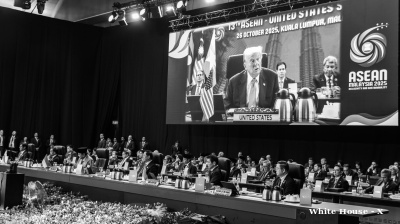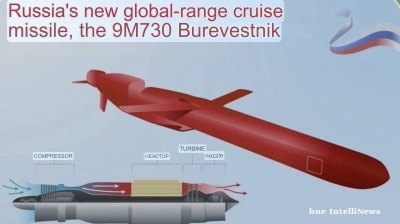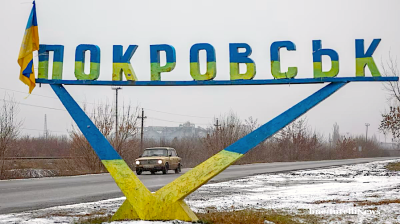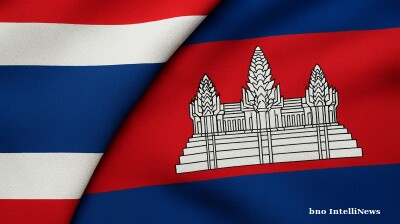The five-nation BRICS club of leading developing economies announced on August 24 that it is to add six new members, effective from the start of next year. The new member nations will be: Argentina, Egypt, Ethiopia, Iran, the Kingdom of Saudi Arabia (KSA) and the United Arab Emirates (UAE).
At its summit in Johannesburg, the five biggest emerging markets in the BRICS group -- Brazil, Russia, India, China and South Africa -- represented a quarter of the world’s economy and the larger part of global GDP on a purchasing power parity (PPP) basis. The group seeks to be a counterweight to the dominance of Western-led geopolitics and provide a forum where developing markets can have their interests better represented on the international geopolitical stage.
Currently emerging markets complain that while they make up nearly half the world’s population and a larger part of its productive power, the countries are under represented in the infrastructure of geopolitics, in institutions like the IMF and World Bank and particularly on the UN Security Council where there are no permanent members from Africa or the Middle East.
China and Russia have been leading the process of creating a BRICS bloc as both nations are in conflict with the West and have been calling for a transition from the unipolar world led by the US to a multipolar world based on the principle of the equality of all countries.
Both Moscow and Beijing see the UN as the proper forum for overseeing this multipolar world, but they are also actively promoting other organisations such as the G20, Shanghai Cooperation Organization (SCO), Asean (Association of Southeast Asian Nations), Eurasian Economic Union (EUU) and other multilateral organisations not dominated by the West.
However, the BRICS members are divided on the nature of what an expanded BRICS+ group should do. Russia and China see the BRICS+ as a political entity that will actively challenge groups like the G7, whereas India and South America see the group as a way to promote commercial ties and accelerate their economic development in cooperation with the West. Brazil remains the most sceptical when it comes to expanding the group. Brazilian President Luiz Inácio Lula da Silva says it would undermine BRICS authority.
After the expansion announcement, South Africa sought to play down fears of an aggressive BRICS+, especially in the light of the inclusion of Iran, emphasising the grouping was not hostile to the West.
Anil Sooklal, South Africa’s BRICS sherpa, told reporters the group needs to change with the times. “This is what BRICS is saying, let’s be more inclusive. BRICS is not anti-West,” he said.
At the summit, the five BRICS leaders thrashed out a middle group and emphasised that the group wants to bring “diversity” to the world’s power structure “amid increasing polarisation.” That polarisation existed before Russia’s invasion of Ukraine last year, as was seen in the trade war between the US under former president Donald Trump and Beijing, but the war in Ukraine has catalysed a fracture between the West and the Global South. China’s growing assertiveness in Southeast Asia and the South China Sea has also rubbed relations between East and West raw.
While Brazil, South Africa and India would like to stay in the middle ground, Russia and China are attempting to bind them into a group that can oppose the West. Most smaller developing countries find themselves caught in an even more unpleasant position between the world’s powerful nations and are under pressure to pick sides, which they resist as best they can, trying to get the best deal they can from the competing nations.
Nevertheless, at least 23 other countries have applied for BRICS membership; many of them, like Russia and China, having been on the receiving end of US ire.
As bne IntelliNews has reported, more than 40 countries have expressed a desire to join BRICS, according to South Africa, which is hosting the BRICS summit. However, their names have not been released. Amongst those that have declared publicly that they want to join and have submitted a formal request are Algeria, Bangladesh, Egypt and Ethiopia.
From BRIC to BRICS to BRICS+
The original criteria for being a "BRIC" country, a term coined by legendary analyst Jim O’Neill in 2001, were very simple: be a big country, have a big population and have a lot of economic potential.
The BRIC group became a political organisation at its inaugural meeting in 2009 in Yekaterinburg in Russia. South Africa joined in 2010, adding the "S", although by O’Neill’s criteria it should not have been able to as it is too small.
Looking at the new members, it is notable that the Middle East, which plays a smaller role in the Western-led institutions, is well represented, with the Kingdom of Saudia Arabia (KSA) being primus inter pares. The UAE, meanwhile, has built up excellent relations with Russia in the past year and a half. It is home to a substantial number of rich Russians and their businesses that have left the motherland to escape sanctions.
Longstanding close ties between the US and KSA have soured in recent years since the shale revolution in America made the US self-dependent in oil and a rival to the KSA as it became a net exporter.
At the same time, Riyadh's relations with Russia have warmed; Moscow long resisted joining the OPEC cartel, led by KSA, happy to piggyback on OPEC production cuts to drive up prices. The US has stayed outside of the cartel for the same reasons.
However, things changed in 2016, when Russia, along with other neutral oil producers, joined an expanded OPEC+ group to better control international oil prices. Since then relations between Riyadh and Moscow have improved dramatically.
Including Iran together with UAE in the new BRICS+ bloc adds a permanent political dimension to the commercial institution that is OPEC+ and increases the control the emerging geopolitical challenger has over crucial raw materials, as bne IntelliNews has followed in a series of "BRICS MATERIALS" articles.
Russia has invested a lot of effort in building on the Soviet-era good relations held with the Middle East, and as one of the few countries that is on friendly terms with both Iraq and Iran, as well as Syria, Russia is seen as an honest broker in the region.
China has also invested heavily in the region. In April, China, to a lot of surprise, successfully brokered a rapprochement between KSA and Iran. They had broken off diplomatic relations eight months earlier. Likewise, Syria returned to the Arab League in May after years of isolation.
Egypt is also an obvious choice for BRICS. It compliments South Africa well as together these two nations are the most prosperous in Africa. Cairo also has one foot in the Arab world, in addition to technically being an African country.
Egypt is heavily dependent on Moscow for oil, grain and other commodities and Egyptian President Abdel Fattah el-Sisi has long since thrown his lot in with Putin. Sisi was co-host of Russia’s first Russia-Africa summit in Sochi in 2019 and was on stage with Putin at last year’s St Petersburg International Economic Forum (SPIEF), as one of the few heads of state to make the effort to attend Russia's big event in the wake of the start of the war in Ukraine.
Ethiopia fits the same mould. It is the second most populous country in Africa after Nigeria and is also a close ally of Russia, depending on Moscow for commodities and for arms in its wars with neighbouring Eritrea.
“Ethiopia will become the third largest economy in sub-Saharan Africa, with GDP expected to reach $156.1 billion in 2023. At the same time, Ethiopia owes a debt of 13.7 billion dollars to China, which has invested 4.5 billion dollars in the construction of the Addis Ababa-Djibouti railway. This infrastructure is part of China's BRI supply chain. Thus, China was very much in favour of Ethiopia's membership in the BRICS,” says political analysts and bne IntelliNews columnist Denis Cenusa.
Argentina was admitted at Brazil’s insistence. The country is Brazil’s largest trade partner and Brazilian President Luiz Inácio Lula da Silva has championed its cause as he sees it as a natural partner in South America. Argentina is important for both Brazil and Russia. In addition, there is an economic entanglement involving China. Brazil agreed to use the yuan as a payment currency for Brazilian exports to Argentina, its third trading partner, according to Cenusa.
"It is very important for Argentina to be in BRICS," Lula said in a live broadcast on social media from Johannesburg. That was the case despite the economic crisis the country is facing, Lula made clear. The IMF recently struck a $44bn rescue deal with Argentina. Lula has criticised it as “suffocating”. He would like to see the New Development Bank (NDB, formerly known as the BRICS Bank) take up Argentina’s cause.
Iran is an important player for Russia which has pledged to invest in building transport infrastructure across the Caspian Sea to reduce the costs of trade in Russia's pivoting to Asia due to decoupling from the West. Iran is also on good terms with China, according to Cenusa.
Saudi Arabia and the United Arab Emirates are key players in the energy sector and having them on board will benefit all the BRICS, whether they are energy-hungry or willing to have an additional geopolitical platform to coordinate energy production policies.
“China, India and Russia are close to Saudi Arabia for very different reasons. Separately, UAE companies are also suspected of helping Russia circumvent sanctions by exporting banned products and becoming a safe place for the Russian capital fleeing the country,” according to Cenusa.
Egypt's imports from China amounted to $14.4bn in 2022, twice as much as in 2017; it runs a huge trade deficit with exports of just $1.8bn. Egypt also has deep ties to Russia: Russians make up 40% of all tourists; the wheat Egypt imports is almost entirely Russian.
Notable absences from the short list of new members include Indonesia, by far the most populous country in SE Asia after China, and Vietnam, with both countries close allies of Moscow in the region.
Algeria and Bangladesh were also obvious candidates for inclusion in the group. Bangladesh is already a member of the NDB. What was dubbed “the bottomless basket” by Henry Kissinger is now the bull economy of the Pacific Rim, where per capita incomes recently overtook those of India.
The US has sought to play down the growth of the BRICS group as a supposed rival to its power. Jake Sullivan, the White House national security adviser, told reporters that the Biden administration is “not looking at the BRICS as evolving into some kind of geopolitical rival to the United States or anyone else”.
He said that the United States had “strong positive” relations with Brazil, India and South Africa, adding that “we will continue to manage our relationship with China; and we will continue to push back on Russia’s aggression,” The New York Times reported.
News

US grants 0% tariffs to Malaysia alongside Cambodia and Thailand
US President Donald Trump has approved a 0% tariff scheme for selected goods from Malaysia, Cambodia, and Thailand, a move formalised during the ASEAN Summit in Kuala Lumpur.

Russia test fires its Burevestnik nuclear-powered cruise missile
Russia’s Burevestnik nuclear-powered cruise missile has no analogues in the world, Russian President Vladimir Putin said, as the Kremlin escalates the unfolding missile arms race with Ukraine another notch.

Russia claims to surround Pokrovsk
Russia’s chief of the general staff Valery Gerasimov triumphantly reported to Putin that 31 Ukrainian battalions have been encircled in Pokrovsk and 18 battalions in Kupyansk, the hottest spot in the war.
.jpg)
Brazil and US to start urgent tariff negotiations after Trump-Lula meeting
Brazilian President Luiz Inácio Lula da Silva and US President Donald Trump have agreed to start immediate negotiations on tariffs and sanctions imposed by Washington, following a meeting in Malaysia that sought to ease trade tensions.



